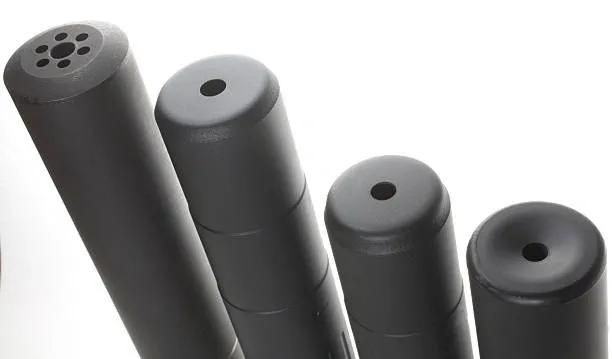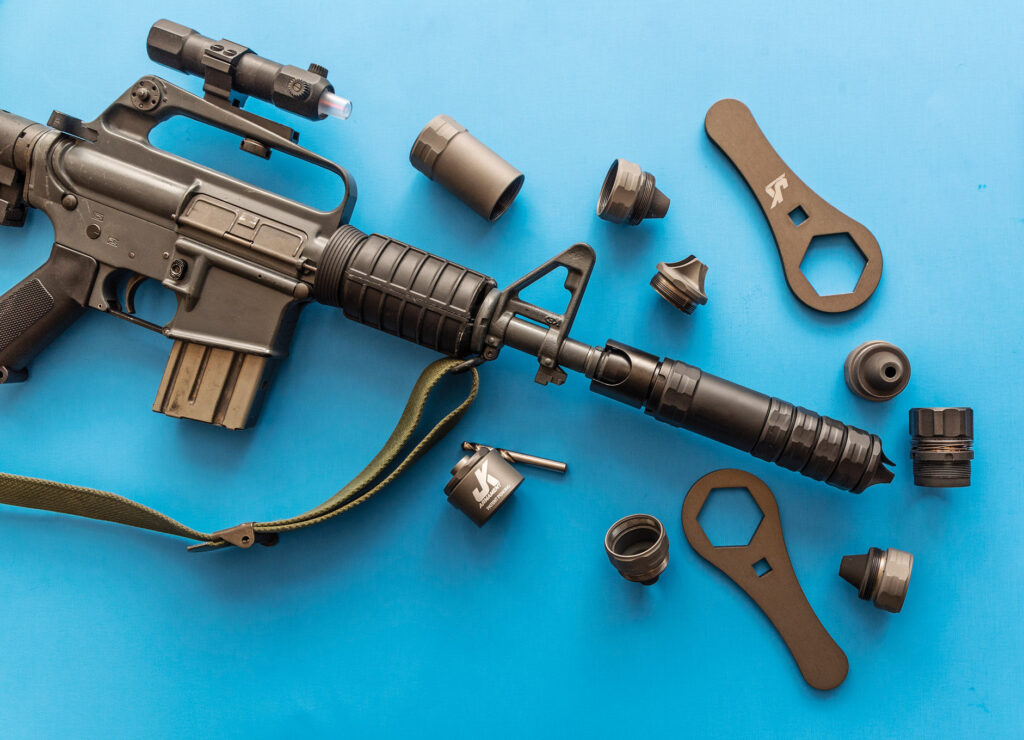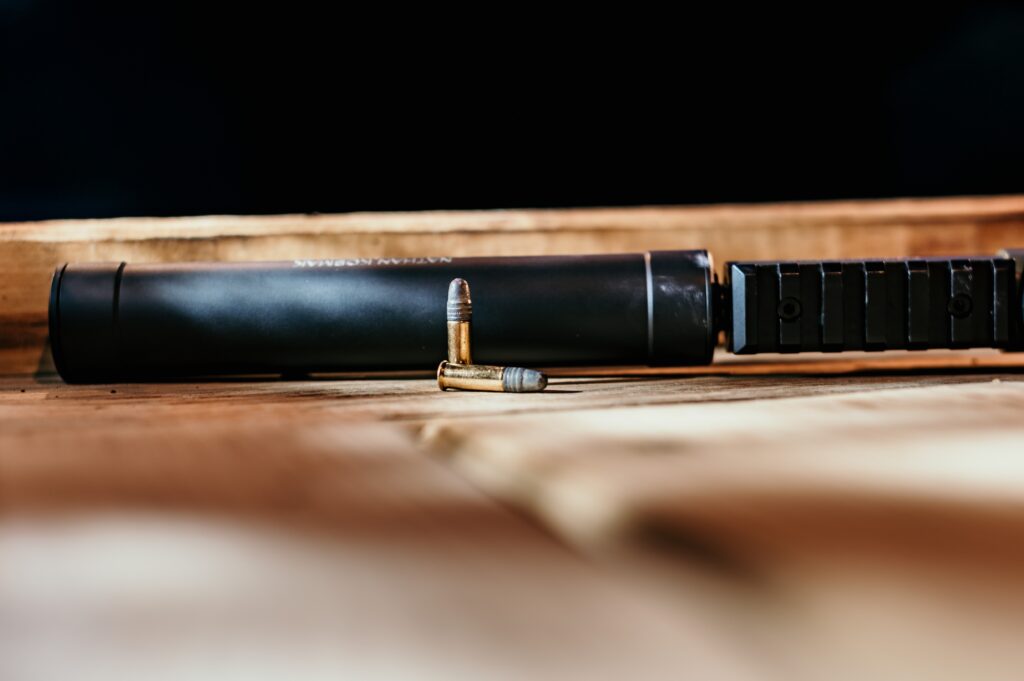Table of Contents
As a passionate firearm enthusiast, I have always been intrigued by the concept of suppressors and their potential to reduce firearm noise. Recently, I came across solvent trap suppressors, which have gained popularity as a cost-effective alternative to traditional suppressors. Curiosity got the better of me, and I embarked on a personal journey to understand their effectiveness and safety. So How effective are solvent trap suppressors? the short answer is Yes, they are so effective, better, and affordable. In this article, I will share my insights and experiences as I delve into the world of solvent trap suppressors, exploring their performance, legality, safety considerations, and potential drawbacks.
Understanding How Effective Are Solvent Trap Suppressors

Solvent trap suppressors have gained attention and sparked curiosity among firearm enthusiasts in recent years. Originally designed as devices to capture cleaning solvents during firearm maintenance, solvent traps have found a new purpose as potential sound suppressors. However, it is important to have a clear understanding of what solvent trap suppressors are, how they work, and the considerations surrounding their use. Let’s explore the intricacies of these devices.
What Are Solvent Trap Suppressors?
Solvent trap suppressors, also known as “solvent catchers” or “solvent traps,” are cylindrical devices typically made from materials like aluminum or stainless steel. They resemble the outer appearance of conventional firearm suppressors, consisting of an outer tube, an inner baffle system, and end caps. Originally, solvent traps were intended to collect and contain solvents used for cleaning firearms, preventing them from entering the environment.
Repurposing Solvent Traps as Suppressors:
Due to their similar design and construction to firearm suppressors, solvent traps have caught the attention of those seeking cost-effective alternatives to traditional suppressors. Firearm enthusiasts have explored the idea of modifying solvent traps to potentially reduce firearm noise and mitigate the sound signature generated by the muzzle blast.
How Do Solvent Trap Suppressors Work?
Solvent trap suppressors operate on the principle of slowing down and cooling the expanding gases released from the muzzle of a firearm. When a round is fired, hot gases rapidly expand, creating a loud noise known as the muzzle blast. Solvent trap suppressors aim to capture and dissipate these gases, reducing the noise produced.
Solvent trap suppressors use an inner baffle system to create multiple chambers, disrupting gas flow and reducing sound. Slowing down gases and increasing surface area for heat dissipation potentially reduces noise.
Performance and Sound Reduction


My initial experiments with solvent trap suppressors revealed varying results in terms of sound reduction. Depending on the specific firearm, ammunition, and design of the suppressor, I experienced moderate to significant reductions in noise levels. It was intriguing to witness the impact these devices could have on mitigating the deafening sound of gunfire.
However, Inconsistent performance may result from the lack of standardized testing and quality control in solvent trap suppressor production. While some models delivered impressive noise reduction, others fell short of expectations. It became clear that without proper engineering and testing, the effectiveness of solvent trap suppressors could be compromised.
Firearm and Ammunition Combination:
To assess the performance of solvent trap suppressors, I tested them across various firearms and ammunition combinations. I used different calibers, barrel lengths, and ammunition types to gauge the effectiveness of sound reduction. I observed that larger calibers and higher-pressure ammunition generated more noise, requiring suppressors with greater sound attenuation capabilities to achieve a noticeable reduction.
Sound Reduction Capabilities:
Through my experiments, I witnessed varying degrees of sound reduction using solvent trap suppressors. With certain combinations of firearms and ammunition, I experienced moderate to significant decreases in noise levels. It was remarkable to witness the transformation of the deafening crack of gunfire into a muffled thud. However, it is important to note that the level of noise reduction may not match that of purpose-built suppressors.
Standardized Testing and Evaluation:
One aspect that became evident during my exploration was the lack of standardized testing and evaluation for solvent trap suppressors. Unlike commercially manufactured suppressors, which undergo rigorous testing and quality control measures, solvent trap suppressors lack standardized benchmarks for assessing their sound reduction capabilities. This absence makes it challenging to compare different models and quantify their performance objectively.
Conclusion


My journey into the world of solvent trap suppressors has provided valuable insights into their performance and sound reduction capabilities. Through exploring designs, and testing firearms and ammunition combinations, I gained a deeper understanding of solvent trap suppressors. Solvent trap suppressors have the potential to noticeably reduce firearm noise, providing firearm enthusiasts with an alternative sound suppression option.
However, it is crucial to approach solvent trap suppressors with realistic expectations and prioritize safety at all times. The lack of standardized testing and evaluation for these devices highlights the importance of thorough research and responsible firearm ownership.
Solvent trap suppressors provide cost-effective options for moderate noise reduction but may not match commercial suppressors’ capabilities. It is important to note that their performance can vary depending on factors such as design, firearm and ammunition combination, and the quality of the solvent trap itself.
In conclusion, my personal experience has highlighted the potential benefits and considerations surrounding solvent trap suppressors. By combining responsible firearm ownership, adherence to legal regulations, and thorough research, firearm enthusiasts can make informed decisions regarding sound reduction options. Prioritize safety and compliance. Choose solvent trap suppressors, commercial suppressors, or hearing protection devices for an enjoyable shooting experience.
